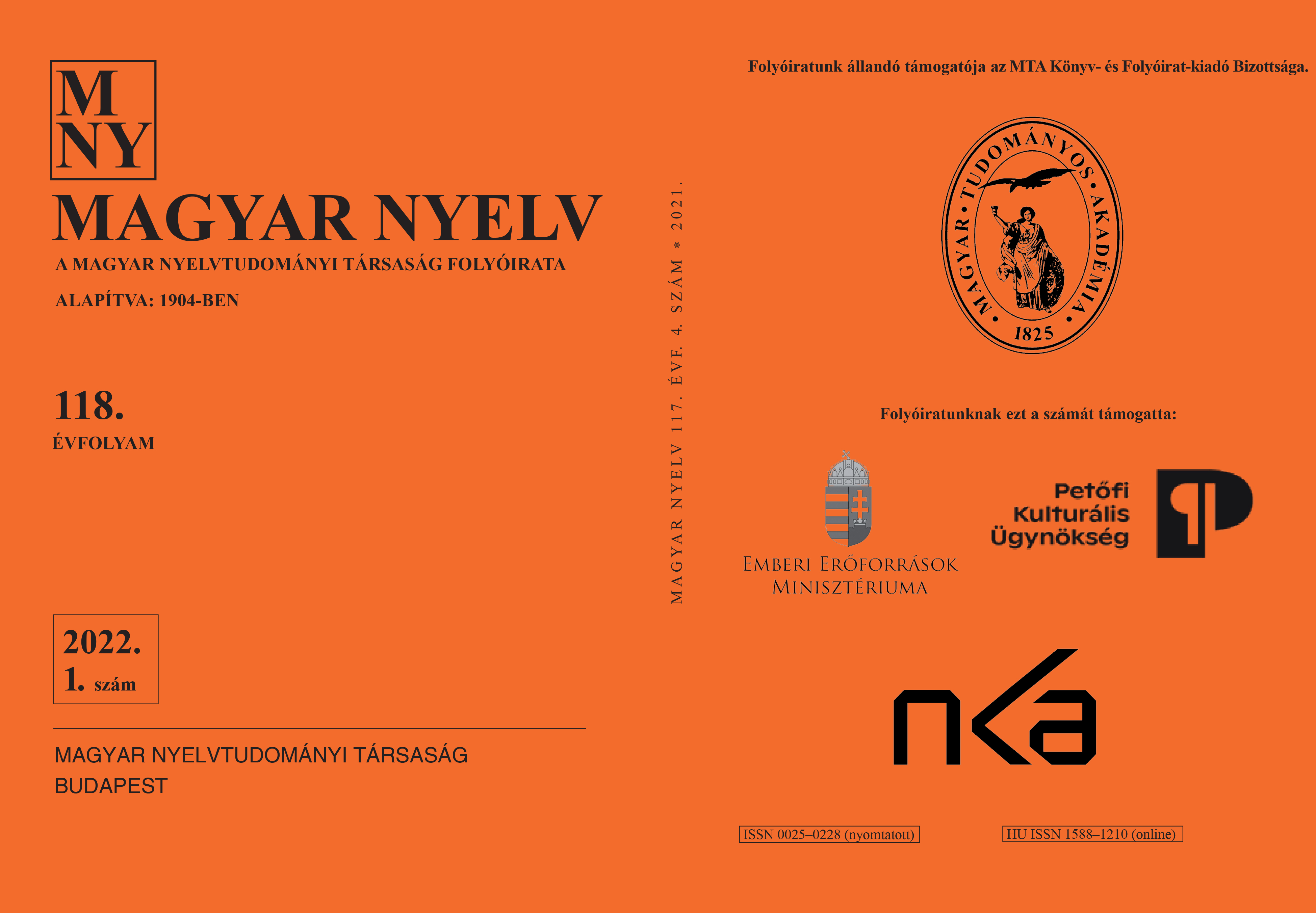Loránd Benkő’s oeuvre from an ethnographical point of view
DOI:
https://doi.org/10.18349/MagyarNyelv.2022.1.13Keywords:
Loránd Benkő, etymological dictionary, historical dialectology, historical onomatology, history of settlements and ethnic groups, linguistic geographyAbstract
Loránd Benkő first and foremost was an eminent scholar of Hungarian language. His first publications discussed the problems of toponyms and linguistic geography. As a university professor and as a member of the academic team working on the Atlas of Hungarian Dialects, he familiarised himself with various dialects of the Carpathian Basin and Moldavia (Romania) during years of fieldwork. Loránd Benkő summarised the historical lessons and research objectives of linguistic geography. He wrote a university textbook on historical dialectology. He also published a pioneer monograph on early Hungarian proper names, and pointed out the emergence of two-unit proper names and family names in the late medieval period (from the end of the 13th century to the 15th century). Based on the research methods of onomastics studying and systematising the etymology and typology of place names, and taking data of historical dialectology into consideration, he explored the phases of the settlement of the Székely people in Transylvania and the history of the Moldavian Csángó groups. He also analysed with these research methods the history of settlements and ethnic groups in the region of the river Pinka (nowadays a province in Burgenland, Austria). Loránd Benkő played an important role in the organisation and supervision of the compilation of two etymological dictionaries: Historical-Etymological Dictionary of Hungarian Language (in Hungarian, 3 volumes, 1967–1976) and Etymologisches Wörterbuch des Ungarischen (2 volumes, 1993–1996). His works provide a solid basis for the study of the history of Hungarian folk culture as well. As a teacher and organizer of scholarly research, Loránd Benkő made a long-lasting impact on a number of related academic disciplines within humanities. He was also a good friend of Hungarian ethnography.
Downloads
Published
Issue
Section
License
Magyar Nyelv is a Diamond Open Access periodical. Documents can be freely downloaded and duplicated in an electronic format, and can be used unchanged and with due reference to the original source. Such use must not serve commercial purposes. In the case of any form of dissemination and use, Hungarian Copyright Act LXXVI/1999 and related laws are to be observed. The electronic version of the journal is subject to the regulations of CC BY-NC-ND (Creative Commons – Attribution-NonCommercial-NoDerivatives).
The journal permits its authors, at no cost and without any temporal limitation, to make pre-print copies of their manuscripts publicly available via email or in their own homepage or that of their institution, or in either closed or free-for-all repositories of their institutions/universities, or other non-profit websites, in the form accepted by the journal editor for publication and even containing amendments on the basis of reviewers’ comments. When the authors publicize their papers in this manner, they have to warn their readers that the manuscript at hand is not the final published version of the work. Once the paper has been published in a printed or online form, the authors are allowed (and advised) to use that (post-print) version for the above purposes. In that case, they have to indicate the exact location and other data of the journal publication. The authors retain the copyright of their papers; however, in the case of an occasional secondary publication, the bibliographical data of the first publication have to be included.



